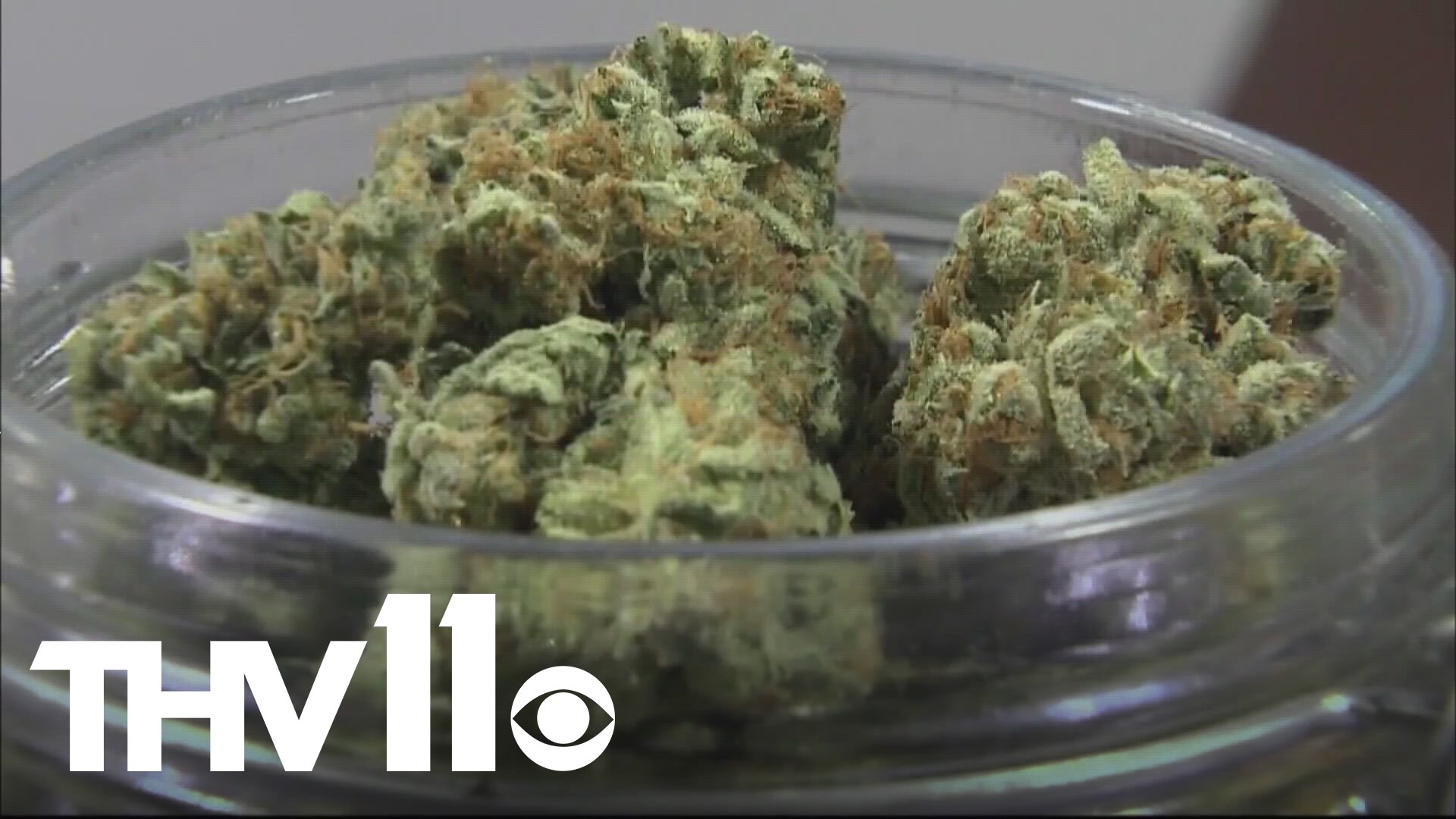HOT SPRINGS, Ark. — Arkansas's medical marijuana industry has surpassed one billion dollars in revenue.
The program's sales over the last four years have generated millions in tax revenue.
But how does all that money impact Arkansans?
On Friday, Dragon Bicentic helped hundreds at his dispensary, Green Springs Medical in Hot Springs, get their medical marijuana prescriptions.
"Today's been crazy," Bicentic said. "It's the first of the month, so it's busier than most days."
As one of the first dispensaries to open in Arkansas, Bicentric added that he's seen more and more customers since the medical marijuana program started in 2019.
"The state originally thought it was gonna be like a 1% participation rate, and we're at 95,000 people now," Bicentric said. "We're three and a half times what the state originally thought would be."
And continued busy days mean more revenue, which includes more tax dollars for the state now hitting record totals.
Scott Hardin, who works in the state's Finance and Administration Department, keeps tabs on those records.
"We crossed $1 billion in overall sales, meaning patients have spent from their pockets $1 billion-plus on medical marijuana purchases," Hardin said.
Of the billion-dollar total, 10.5% percent goes to taxes, which comes to about $115 million.
Hardin explained those tax dollars can then benefit the state.
"$87 million of that went to UAMS, specifically for their designation," Hardin said. "Their work toward a national cancer institute designation."
But now, with new legislation, those funds will instead go toward covering outstanding school lunch debts.
"What that means is if you're already on a reduced lunch, and you still owe $2 for your school lunch every day, that medical marijuana revenue comes in and pays the $2 to ensure that it's free," Hardin said. "The question is, 'How is this helping Arkansans?' That's the answer."
Just as it has over the past four years, Hardin expects the program to continue to grow in membership, which means more tax revenue from the state's 38 dispensaries.
And managers like Bicentic are happy about more than just the bottom line.
"Just meeting people and hearing them say, 'Thank you for saving my life,'" Bicentic said. "At first, I didn't know what that meant, and then they said, 'I'm off opioids.'"
Hardin said the money designated to cover reduced lunch debt will transfer over at the end of the fiscal year this summer.

